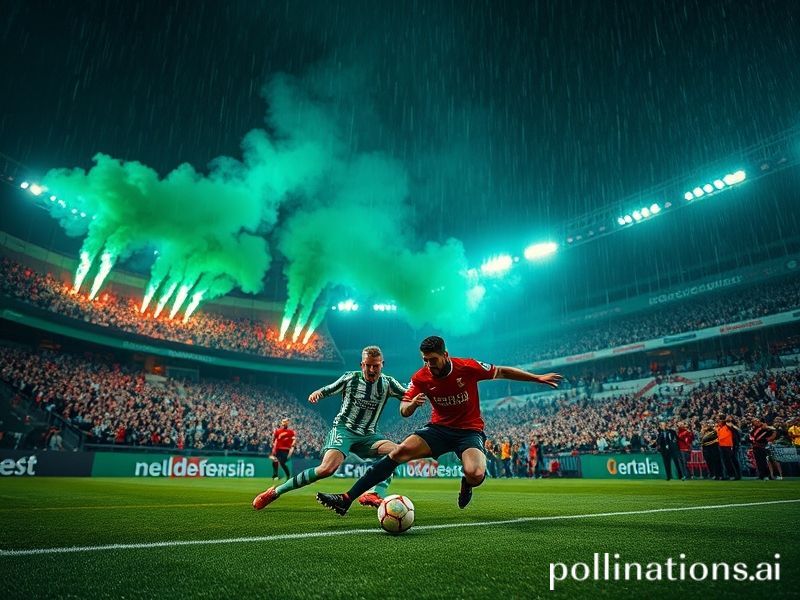Seville to Singapore: How Real Betis vs Nottingham Forest Became the World’s Most Absurdly Important Football Match
**Two Clubs, One Planet: Real Betis vs Nottingham Forest and the Absurd Theatre of Global Fandom**
On Thursday evening, the Estadio Benito Villamarín will witness a collision of two football clubs whose combined histories read like a darkly comic opera about human hope: Real Betis—Seville’s perpetually heartbroken romantics—and Nottingham Forest, who once conquered Europe but now seem determined to remind everyone that even miracles have expiration dates. While 50,000 Andalusians and a few thousand traveling East Midlanders will actually be present, the match’s real audience stretches from Lagos living rooms to Tokyo sports bars, proving once again that modern football’s most valuable export isn’t talent—it’s the illusion of belonging.
The fixture itself, a Europa League knockout play-off, carries the sort of stakes that would make a hedge fund manager weep with envy. For Betis, it’s a chance to momentarily escape the existential dread of being Spain’s fourth-most-successful club in a country where only three teams matter. For Forest, it’s an opportunity to remember what European nights feel like before Brexit paperwork makes away games feel like hostage negotiations. Yet these local anxieties play out against a backdrop of global absurdity: the match will be broadcast in 183 countries, including nations where the average citizen earns less than Forest’s weekly wage bill but still manages to stream the game on a cracked Android phone.
What makes this particular encounter internationally fascinating isn’t the football—it’s the meta-narrative. Here we have two clubs representing cities that, on paper, shouldn’t matter to anyone outside their postcodes. Seville and Nottingham aren’t London or Madrid; they’re the sort of places that international investors struggle to locate on a map unless there’s a football stadium involved. Yet through the dark magic of television rights, social media tribalism, and the human need to attach meaning to 22 strangers kicking leather, they’ve become global brands. Betis fans in Buenos Aires now argue about Manuel Pellegrini’s tactics with the same fervor as season-ticket holders in Triana, while Forest supporters in Kuala Lumpur wake at 3 AM to watch a team that last won the English title when their grandparents were children.
The economic implications are equally delicious in their perversity. The winning club will progress to a tournament whose prize money could pay for a small nation’s healthcare system, while the loser returns to domestic competition where both teams currently sit mid-table—those comforting purgatories where mediocrity is monetized and hope is sold in nine-month installments. It’s capitalism’s greatest magic trick: transforming athletic disappointment into quarterly revenue, complete with NFTs and cryptocurrency partnerships that neither the players nor the fans understand.
Meanwhile, geopolitical tensions simmer in the background like a subpar paella. The match’s betting markets will be dominated by Asian syndicates, European regulators will monitor for irregular patterns with the enthusiasm of traffic wardens, and both clubs’ social media teams will spend the night deleting comments from bot accounts promoting everything from crypto scams to political propaganda. It’s international relations played out through the medium of corner kicks and Twitter spats, a reminder that in 2024, even a football match can’t escape the gravitational pull of global dysfunction.
As the final whistle approaches and the Seville night air fills with either jubilation or despair, both sets of fans will experience that peculiar modern emotion: the simultaneous feeling of being part of something massive while knowing, deep down, that none of it actually matters. Tomorrow, the world will still be burning, the rich will still be getting richer, and both clubs will still be owned by people who view supporters as particularly emotional revenue streams.
But for 90 minutes plus stoppage time, two cities that the global economy forgot will remind the planet that tribalism, hope, and the need to scream at strangers in different languages remain humanity’s most reliable exports. And really, what could be more international than that?







